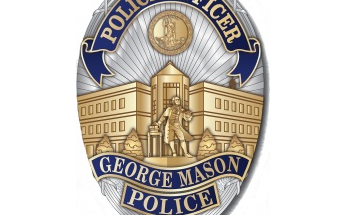Students share conflicting thoughts on polling of 2020 presidential election
BY BRAD BYRNE STAFF WRITER
As the 2020 presidential election looms in the very near future, polling has become another topic of debate for this election. After some polling was shown to be sometimes inaccurate for the 2016 election after Hillary Clinton was shown to be in the lead, some may doubt what polls mean for this election. I interviewed four Mason sophomores to gauge their opinions on polling and the 2020 election.
What has your reaction been to polls for this election, and has this made you more or less confident?
Denise Colombani-Garay: For starters, my reaction to the polls have made me more confident that the candidate that I want, Biden, is more likely to win. Even though Trump has an advantage by being the incumbent of the presidency, Biden has shown that he actually knows how to run a country.
Mac Clapper: I guess you could say that I’m a bit of a cynical person, but this election cycle sort of seems like 2016 all over again. We have an extremely moderate, borderline-conservative Democratic candidate who isn’t really inspiring … yet he’s polling significantly higher. I think like everyone else, I check FiveThirtyEight every day and make sure Biden has the 80 percent chance of winning the election — however if you go back and look at what Hillary was polling at, it doesn’t inspire confidence.
Erica Wright: My reaction has been somewhat more positive than compared to the 2016 election, since more people have seen what has happened in the last four years under Trump and have seen that nothing socially good has come out of this presidency, and more people have switched over to [supporting] Biden.
Nick Sheets: There has been a wide dearth of polling this election from [the] national polls down to the congressional district level. And the polling is kind of sending mixed messages about margins, but one thing quite clear [is that] Biden is ahead, he’s been ahead and the President needs a miracle to turn that around in the next 12 days.
Who do you think will win this election? And is polling causing people to vote more or less?
Colombani-Garay: I believe that Biden will win since he is more well-spoken. And even if some people agree with the Republican Party, they don’t fully agree on how Trump is running it. I hope that the younger generation that has the chance to vote go and vote because if we want to see a change in the government, we have to make our voices heard.
Wright: I think Biden will win due to the amount of people who have left Trump’s supporting range and Biden [most likely] already has the popular vote. I think the new framework of polling will let more people vote since there is more than a single day for millions of people to vote and it is ranged over the course of weeks unlike a single day.
Clapper: I think in this election particularly, people aren’t looking at the polls and going to go vote. I can’t really say that I knew anyone in 2016 that didn’t vote (that was able to at the time), but I think that Biden’s high polling could potentially have a negative [impact] on voting. Also, the places Joe Biden needs the most are also the hardest to win over for Democrats, so I have a hard time believing Biden will win, but hopefully I’ll be wrong. It just seems like there’s too many similarities between 2016 and our current election cycle for a [Democratic] win.
Sheets: By and large, polling gives an accurate picture of the race, as it did in 2016. Polls showed Hillary’s lead collapsing in the final days and that continued in the final days and that continued into Election Day. Polls now show Biden with a stable, if not growing, lead heading into the final week of the campaign. One thing is different, however: Millions of more people have already voted compared to this time in 2016 […] I tend to doubt the effects that polling is said to have on turnout. We are likely heading for the highest raw vote total ever and the highest percentage turnout since at least the 1940s. Turnout will not be a problem in this election.




